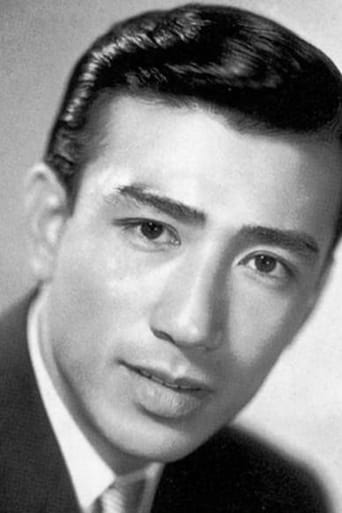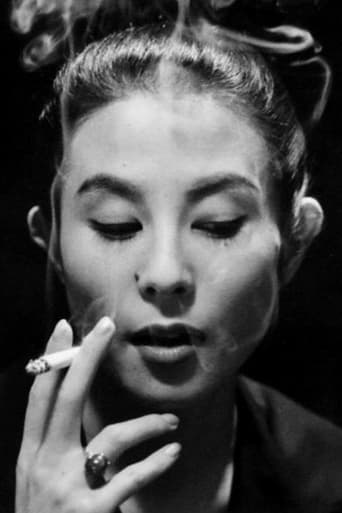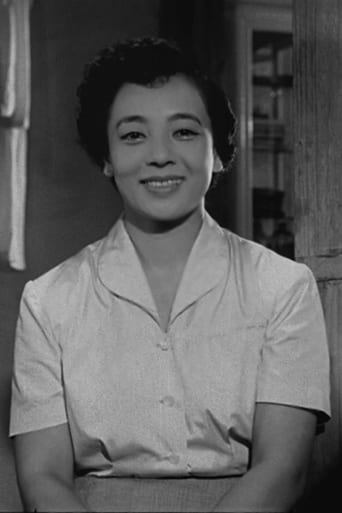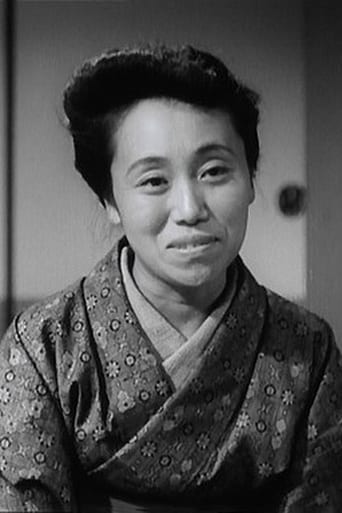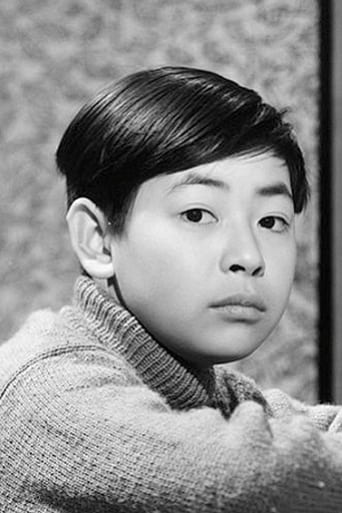Brennan Camacho
Mostly, the movie is committed to the value of a good time.
Mandeep Tyson
The acting in this movie is really good.
Bob
This is one of the best movies I’ve seen in a very long time. You have to go and see this on the big screen.
Ricardo Barros
«— Complicated things are difficult to say. — Yes. Whereas meaningless things are easy to say.»This is my first viewing of any of Ozu's filmography. It was undoubtedly a marvelous experience, and one that I'll never forget.I think the essential beauty of it lies precisely in its simplicity; unlike some directors, like Bergman or Tarkovsky, masters of visual and intellectual complexity on screen, making the canvas burst with extraordinary imagery, Ozu, on the other hand, finds that beauty and complexity in the utmost ordinary things: wanting a television (at a time when it was gaining mainstream popularity in Japan), eating rice with your brother, watching sumo wrestling, doing some English assignments and even... farting.It is in those mostly innocent and innocuous things that Ozu sees the inherent wonder of being a child, and it is that feeling of astonishment that he conveys through gentle, placid camera angles and creamy colour tones.The complicated doesn't need to be difficult to say, and sometimes the most meaningful of things are the ones who are the simplest to express.
tomgillespie2002
Japanese master Yasijuro Ozu repeated many themes in his movies. One of the key things running throughout his films is the idea of communication, or the lack of it. Good Morning, or Ohayo (to give the film its native title) centres around two young brothers, Minoru (Koji Shitara) and Isamu (Masahiko Shimazu), who long to own a television set. Their parents refuse, citing the fact that it will kill the art of conversation as the reason why. The boys rebel after accusing grown ups of talking a lot but never saying anything worthwhile, and go on a vow of silence, much to their parents gratitude. In a key sub-plot, the town gossips accuse the neighbourhood treasurer Mrs. Haraguchi (Haruko Sugimura) of embezzling their funds in order to buy herself a new washing machine, when in fact one of the gossips' mothers had forgot to pass the money on.Ozu's reputation as one of cinema's all-time greats and a director of elegance and sophistication is given a bit of a kick up the arse in this film. This is Ozu at his most hilarious. The mischievous brothers' increasingly desperate antics unwittingly causes mayhem amongst the townsfolk and inevitably has them bickering amongst themselves. It also contains lots of fart jokes. Yes, fart jokes, from Ozu. The brothers and their friends have a strange obsession with forcing out little farts as they push each others foreheads, which causes one unfortunate to repeatedly soil himself as he tries to take part.The kids' accusations that grown-ups have nothing useful to say is as amusing as it is poignant. The communities breakdown in communication leads to all sorts of rumours flying around about where the treasuries money is, when a simple forgetful act is all that has taken place. Even when this is discovered and the matter appears to be cleared up, they still find ways to stir up trouble. And the scene where two singletons who are obviously attracted to each other talk about the weather to fill the awkward silences, is as heartbreaking as it is oddly magical. Only a true master such as Ozu can conjure two conflicting emotions from one scene. But beneath all the bittersweet comedy and social observations is a sobering message about the decline of community and the looming death of cinema. Stunning filmmaking from a true great.www.the-wrath-of-blog.blogspot.com
poikkeus
After directing his most characteristic and famous later films (Early Morning, Late Afternoon, Tokyo Story) - which addressed the same theme with remarkable differences in tone - GOOD MORNING is a pleasing palate freshener. This family drama is also a witty comedy dealing with the miscommunications that complicate modern life.This was Ozu's second color film (after Equinox Flower), but the cheerful music and bright colors make for different effects. GOOD MORNING'S "gas" jokes are gentle and clever (the young boys fart on command, a minor character works for the gas company, while a husband farts in one room, and a wife answers, etc.) The film's famous static shots center around a gleaming refinery. One of the film's delights comes from watching the visual and thematic elements weave together, and so effortlessly that it's thrilling to see it develop. This is my personal favorite Ozu film, if only because it perfectly balances drama and comedy, metaphor and visuals. GOOD MORNING is the kind of movie you can see repeatedly, as there are always new things to discover. It certainly doesn't hurt that it's also a technically refined work, up to Ozu's highest standards.
MartinHafer
This film is typical of the films of the Japanese director, Ozu, because it has to do with the conflict between traditions and modern life in this country. It also features his old fashioned use of the camera--with the typical placement of the camera just below the actors as well as it remaining stationary during the shots. However, unlike most of his films, this is more of a lite comedy and makes fun of social conventions and neighbors.The film begins with two simultaneous themes. First, a group of neighbor women are in a women's club and the dues they gave their leader seem to have vanished. While the lady is sure she turned the money in, the other women begin wondering what might have happened with the funds. Second, two boys are very upset because their parents won't buy them a television. And, when the parents are sick of hearing the kids ask, they tell the boys to be quiet. Then, in a form of social protest, the boys refuse to talk any more to anyone--even at school. The only time they talk at all is when they are alone together.Later, it turns out that the club leader's mother had misplaced the money and everything was okay. BUT, because the boys stopped talking to everyone, the leader of the club thinks their not acknowledging or talking with her is because the family is still mad about the money. So, the rest of the film consists of come misunderstandings that all come about due to the spunky kids.Overall, this is not a laugh out loud sort of film, but a droll little film that gives insight into life in late 1950s Japan. It's slow and gentle--just like all of Ozu's films but with a sense of satire that makes some points about the hazards of post-war life. Well directed and acted from start to finish.By the way, note the comment the one lady makes to her mother about Mt. Norayama--it's amazingly brutal and harsh, but also makes a point about alienation and the disintegration of respect of the elderly.

